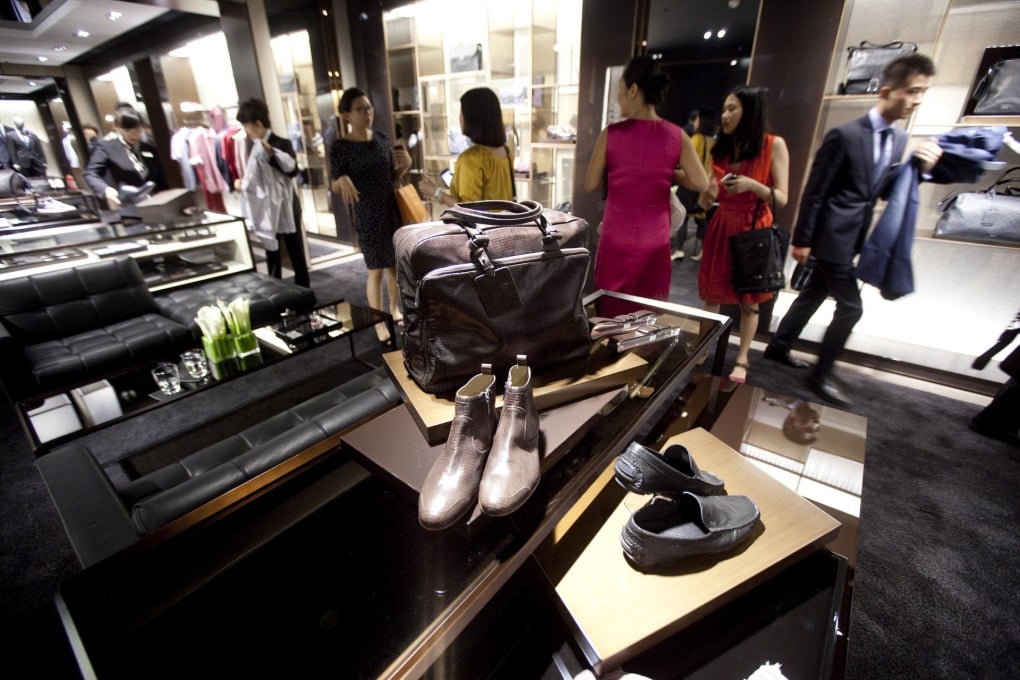How heritage drives success of Chinese luxury brands
By appealing to a cultural element that its consumers are proud of, the mainland is ready for design and promotion of its high-end products

Chinese consumers are quickly becoming the world's largest group of buyers of luxury goods, snatching up products across all segments of luxury, both at home and overseas. Eighty per cent of the growth in luxury goods sales since the 2008 financial crisis has come from Chinese consumption. Even taking into account the potential obstacles such as slowing economic growth and government-led anti-graft measures, all forecasts predict the country's luxury consumption will continue to expand.
Although China is second to none when it comes to buying luxury goods, it barely registers when it comes to making them. Today's Chinese consumers are infatuated with European brands. Last year, we asked more than 200 middle and upper-class Chinese consumers to name their top five luxury brands and more than 95 per cent failed to mention a single Chinese brand. The winners were exclusively French or Italian fashion brands: Chanel (60 per cent of the respondents), followed by Louis Vuitton (43 per cent), Dior (36 per cent), Prada (32 per cent) and Gucci (27 per cent). Moutai, the most established Chinese luxury brand, was mentioned by less than 1 per cent of the respondents.
The absence of luxury brands made in China is not for lack of trying. Diageo, the world's largest producer of spirits, spent several hundred million dollars to acquire luxury Chinese baijiu brand Shui Jing Fang. It tried to expand into the lower market tiers with a flanker brand and grow overseas, but sales have been plummeting continuously since. Similarly, Hermes' luxury decoration brand, Shang Xia, has been losing money since its launch in 2008.
Indigenous Chinese firms are also struggling to develop their own luxury goods. Hongqi, the first Chinese car brand, spent heavily on research and development to manufacture the H7, a luxury car comparable to its German rivals. Chinese officials strongly endorsed the brand, even using it to transport French President Francois Hollande during his state visit to China. Still, Audi sells more luxury cars in two days than Hongqi sells in one year.
Despite all these setbacks, we believe the future is bright for Chinese luxury brands that would not just be designed and crafted in the country, but would bring a Chinese perspective on luxury to Chinese consumers and then to the world. Our optimism is based on proprietary research we have conducted at Johns Hopkins University and INSEAD with hundreds of Chinese consumers in order to compare their vision and motivation for luxury and contrast them with Western buyers. It is also based on the recent success of a few Chinese luxury brands.
One of the best examples of a successful Chinese luxury brand comes, paradoxically, from Paris-based L'Oreal. The firm acquired Chinese cosmetic brand Yue Sai in 2004 and, as with other examples mentioned so far, consistently lost money and market share in the next seven years despite a booming market. Why? L'Oreal's China chief executive Alexis Perakis-Valat and Yue Sai manager Stephane Wilmet said the brand suffered from its status as one of the pioneers of beauty in China. In the West, luxury brands usually tout their old age as promise of heritage and sophistication. In China, however, old is more primarily associated with boring and dated. L'Oreal then tried to apply to Yue Sai the successful lifestyle positioning of L'Oreal Paris ("Because I'm worth it"). It produced, in Paris, a series of ads showing Chinese top model Du Juan, better known in Parisian couture circles than in China, saying "I hold the future in my hands". However, this communication failed to break through the clutter of hundreds of similar ads.